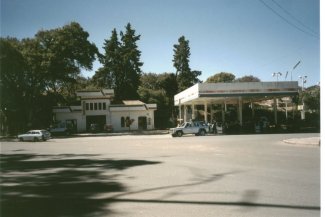The Santa Cruz referendum
Thursday, May 8th, 2008The answer to my last post is “yes”, there was as referendum in Santa Cruz last Sunday.
The results vary depending on which source you read, but it is safe to say that over 80% of those who took part voted for more autonomy in the region.
This overwhelming majority may not come as a surprise to many – there are strong feelings in the region about how the area is treated by the national government. It probably didn’t surprise many people either, that President Morales announced that he would not be recognising the result. In fact, he called the referendum “illegal”. His supporters allegedly burnt ballot papers in some areas and even destroyed one polling station.
At the end of the day, he may have to power to stop the result taking effect at national level, but – although the vote had been announced well in advance – doesn’t seem to have taken action to stop it being held.
Was he relying on his supporters in the region to create enough disruption so as to make polling impossible?
Or did he want to avoid a conflict, knowing he could wipe away the result with one speech later?
I would almost describe it as a “Bolivian solution” – let the people have their say, and then tell them afterwards “it’s good that you think that, but I’ll be ignoring it anyway”.
Other countries would have either banned (and blocked) the vote, by force if necessary. On the other hand, in other countries the fight for local independence has often taken more violent forms.
But perhaps some other countries could be a model for a future Bolivian political solution, and perhaps President Morales should take a look at those countries in order to take a leading role in finding a solution for Santa Cruz.
The Scottish and Welsh assemblies, for example, give those regions of the United Kingdom more independence in running their own affairs, whilst leaving decisions of national importance to the national Government in London. This solution may not be popular with everyone – especially those in Scotland who would prefer to see full independence – but it works for a large majority.
The German “federal” solution would be even more radical: give every area control over their own affairs, but keep national decisions on a national level, and make the areas agree on some of their decisions so that they are more or less uniform across the entire country – just with regional variations.
If President Morales was to go to Santa Cruz and say “let’s talk about it”, the question has to be – would they listen? Would one of those solutions work?
On the other hand, does anyone except him to go there and say that now?


